Jones vs. KMac: Spirit or Material? Toward a Synthesis
By now, healthy numbers of informed people are generally aware of the work of our editor Kevin MacDonald and traditional Catholic thinker E. Michael Jones. Much of their influence comes from the fact that both have devoted major portions of their careers to writing about what is absolutely the most pressing issue of our age: The Jewish Question.
What has long fascinated me is the fact that both writers have considered Jews and their collective behavior in quite contrasting ways — yet in my estimation, they are both right. How can that be? Thus, for a decade or so, I’ve attempted in my own mind to reconcile KM and EMJ. Better yet, I’d love to attempt a synthesis of the two approaches to understanding Jews. Given that the present essay marks my 100th contribution to The Occidental Observer, I’d say that a conversation about the attempt to reconcile KM and EMJ is worthy of the occasion.
In my estimation, the contrasting foundations of these two men’s analyses mirror the larger Western conflict we’ve all seen for five hundred-plus years with the struggle between our inherited Christian past, with belief in faith, souls, spirits, and—most of all—God, vs. rationalism, humanism, and materialism—in other words, a strongly scientific worldview. Obviously, Catholic traditionalist E. Michael Jones falls into the former group, while Kevin MacDonald, an academic evolutionary psychologist, falls into the latter. When views from these two competing and conflicting worldviews consider a wide range of topics, they barely ever share common ground, but with KM’s and EMJ’s approaches, they share so much that they are almost complementary in some respects. How can this be? What, then, is the nature of Jews? Why are they so unique among humans? What can they teach us about humanity in general — if not the greater meaning of existence itself?
My consideration of these questions is biographical in that I’ve grappled with these competing worldviews for most of my life and have actually wavered between them over the decades. To my own surprise, I’d now say that Jones’ Christian approach is the more conclusive narrative in that Christianity — as with religion in general — posits a beginning, a middle and an end, which even to many of us post-Christians is a familiar story encompassing “In the beginning,” Adam and Eve, the life of Christ, the struggles between Good and Evil, everlasting souls, heaven and hell, angels, and always an omnipotent, all-loving God.
In an exchange among KM, EMJ and their hostess, Jones explained some aspects of this religious view:
Man is a composite being made up of body and soul (if that word sounds tendentious to the sociobiologists, they can substitute “mind” in its place). He has both a brain and a mind. These two entities are related but distinct. Human beings, unlike angels, can’t have minds unless they have brains, which function according to the laws of chemistry, biology, electricity, etc. and are a direct product of our DNA. Our thoughts, however, are a function of our minds, and, although we can affect our minds by manipulating the chemistry of our brains through alcohol and drugs, the logic of our thoughts is independent of the functioning of our brains.
In contrast, MacDonald grounds his trilogy on Jews in a post-Christian world, one is which God is dead and therefore plays no role in the universe, where scientific laws impartially govern eternity, among which are those laws in evidence with respect to Darwinian evolution. Sadly (for me personally) this modern view of scientific materialism allows for no obvious purpose in existence beyond mere survival. And while survival is nice, it’s still does not provide a convincing reason to struggle and survive. In this sense, The West in general has been demoralized for the past few hundred years, depending on the pace and degree of an acceptance of the atheism — implicitly or explicitly — that has appeared alongside the rise of science.
In short, should you warm to either KM or EMJ, it will likely come down to the worldview you tend to accept already — the general Christian one of historical Europe or the modern scientific view. Personally, I can’t imagine many people changing their worldviews from one to the other simply based on a careful reading of Jones vs. KMac, but that has in fact been happening to me. I’m not back to a belief in God yet, but due to the facts surrounding the Jewish Question, I’m inching my way away from the Existential belief that our presence here on this Earth is meaningless, for it appears indisputable that Jewish existence has some sort of meaning, and, if their existence has meaning, so should ours.
Having just argued tentatively in favor of the religious or supernatural, I will allow that KM likely has the advantage in this debate in that the modern West and its institutions have largely abandoned a spiritual, Christian approach and accepted “science,” which can be as seemingly solid as physics and math or as malleable as the social sciences have been across time. As a rule of thumb, “educated” Westerners have shed Christianity and a belief in God, while “the unintelligent, hicks and charlatans” still embrace them. Witness today’s knee-jerk reaction to the Catholic Church’s repression of Galileo or the respective fates of Clarence Darrow and William Jennings Bryan in the 1925 “Scopes Monkey Trial,” such that Darrow is still respected to this day while Bryan is knowingly mocked.
Without question, the largest institutions of The West such as academia and the media, but also the government that rules over us, are functionally anti-Christian and pro-science. Few would argue otherwise. (Let’s leave out the Covid debate for now.) So it is within these structures of support that MacDonald has advanced his career. His project on Jews in the 1990s admits as much in the opening words of the 1994 book that began the trilogy: “The project attempts to develop an understanding of Judaism based on modern social and biological sciences. … The fundamental paradigm derives from evolutionary biology, but there will also be a major role for the theory and data derived from several areas of psychology, including especially the social psychology of group behavior.” (vii)
Though it’s been many years since I read the trilogy, I still have a strong impression that A People That Shall Dwell Alone (1994) and Separation and Its Discontents (1998) hew more closely to what appears to be MacDonald’s mid-to-late career dedication to impartial scientific inquiry. In contrast, by the time of the more famous Culture of Critique: An Evolutionary Analysis of Jewish Involvement in Twentieth-Century Intellectual and Political Movements, (also 1998; hereafter usually CofC) there is the impression that this scientist-author, as a member of the group being “critiqued” and therefore harmed, has experienced a number of “Aha!” moments and realized that his earlier efforts at impartial research were insufficient when encountering a hostile group that undermines the very power of impartial science in the service of, well, a “group evolutionary strategy.” This does not imply that MacDonald did not think that the theory and data in CofC would not hold up to the same standards of scientific rigor as the other books in the trilogy. However, from 1998 onward, I would say, MacDonald has become a partisan—and for many good reasons. (In fact, here he writes as much: “As a result of reading about various Jewish intellectual and political movements, I came to see Jews as advocating policies that are opposed to the interests of European peoples. It was this cognitive awareness based on a great deal of reading and thinking that led me to my current beliefs.”)
Careful readers of the trilogy will spot this shift, I believe, with the first two books relying more heavily on evolutionary theory straining to be as evidence-based as possible, whereas CofC moves on to “the Boasian school of anthropology, psychoanalysis, leftist political ideology and behavior, the Frankfurt School of Social Research, and the New York intellectuals.” What is critical, KM points out, is that these venues and ideologies were promoted for their “scientific rigor” for decades, when in fact, as MacDonald discovered, they were perversions of real science employed in the course of anti-White ethnic warfare, with Freudian psychoanalysis being a prime case in point.
Perhaps more than any other thinker in the English-speaking world, MacDonald has exposed this form of ethnic warfare and really captured the critical conversations about race, Jews and Whites in the first two decades of the 21st century, despite robust efforts by Jewish-led interests to stifle this knowledge.
To be sure, KMac’s account could be right — and probably is. Over the millennia, Jews have evolved adaptive behavior that ensures their survival and puts them on top. But honestly, it’s really just too … “uncanny,” which is why EMJ’s Christian approach has, against my desire, it seems, pulled me toward belief in a spiritual battle rather than a merely biological and social one. Let’s consider Jones’ account.
I first ran across the writings of Dr. Jones through his journal Culture Wars, and I actually stopped buying it after a number of issues because the editing and format were often so atrocious that I could not take it seriously. I returned to it, however, because Jones’ writing on Jews was so blasphemous — meaning so good, touching always on our current culture in ways that were highly instructive. Only Kevin MacDonald, many of us TOQ/TOO writers and a tiny handful of others were doing something similar. And Lord knows the mainstream press and academia wouldn’t touch an approach like Jones’ (though any number of Jewish academics were in fact writing similar things in books that were rather obscure, in part because far fewer people read books this century).
I’m pretty good about keeping up with these topics and am happy to say that both MacDonald and Jones, despite opposition, have been getting great exposure for some twenty years. No doubt this is due in part to their successful use of non-written forms of discourse, such as YouTube, other podcasts, speeches, interviews, etc. And for some years, all their works were available on Amazon but of course those days are long gone as the regime methodically cracks down on White activists (and Jones).
Punishing Heretics
Not surprisingly, both of these modern heretics have paid a steep price for fearlessly addressing the JQ. For instance, beginning in 2006, this attack began against MacDonald:
The Southern Poverty Law Center has initiated a campaign against me. The controversy started in September, 2006 when someone not connected with CSULB emailed all the full-time people in the Psychology Department — except me — alerting them to a comment about me at the SPLC website. Heidi Beirich of the SPLC came to Long Beach from November 12–15, 2006 to interview faculty and administrators about me. During the 2006–2007 and 2007–2008 academic years there was also a great deal of discussion and debate about my work and associations on faculty email lists. Eventually several departments issued statements dissociating themselves from my work and, in some cases, condemning my work.
The result was a hostile working environment for the next eight years (until he retired) where “[c]old shoulders, forced smiles and hostile stares became a reality. Going into my office to teach my classes and attend committee meetings became an ordeal.” Fortunately, MacDonald mounted a robust defense, arguing that “The SPLC is paying me attention because it wants to suppress my academic work.” Further, he argued that the two authors of the SPLC created a report that was “a compendium of ethical lapses.” Unlike others, he survived this attack on his career.
It’s been far from smooth sailing since, however. The ADL currently has 88 entries on MacDonald, and one way or another, MacDonald’s family and neighbors have heard nefarious stories about the retired professor, leading to discomfort and ostracism that most people never experience. And, of course, The Occidental Quarterly (an academic journal) and the online Occidental Observer, both of which MacDonald edits, have been de-platformed by PayPal and credit card processors.
E. Michael Jones has also endured his fair share of opprobrium as well, beginning with the almost surreal story of his first teaching appointment:
In the fall of 1980, E. Michael Jones was an assistant professor of American Literature at St. Mary’s College. After receiving his Ph.D. from Temple University in 1979, Jones had moved his wife and two children to South Bend, Indiana to begin what he thought was going to be a career in academic life. But God had other plans. One year into the six years of his tenure track position, Jones got fired because of his position on abortion. Getting fired for being against abortion at what called itself a Catholic college was something his professors at Temple found difficult to understand. Taking his cue from their incomprehension, Jones decided to abandon academe and start a magazine instead. Initially known as Fidelity and now as Culture Wars, that magazine set out to explore the disarray in the Catholic Church that led to his firing.
What Jones eventually found was that America’s kulturkampf, which long had a Protestant-Catholic dimension as well as a glaring racial one, found itself with a rapidly growing Catholic-Jewish battle as well. Increasingly after the year 2000, Jones wrote about this conflict in Culture Wars, culminating in collecting these essays into a truly magisterial book in 2008 titled The Jewish Revolutionary Spirit and Its Impact on World History (JRS). No reader of Jones’ writing in that tome can be surprised that Jones has been met with Jewish opposition. Jones, of course, seems entirely right about his arguments and observations, but many Jews don’t necessarily want the world to read such truths about them.
In particular, the SPLC has been aggressive in chasing Dr. Jones. And in 2008 they realized what initially appeared to be one of their greatest successes. As Jones relates:
I was in the middle of a tune when I got the call. On Monday nights I play Irish music at a pub in South Bend. On Monday, February 11, I was planning an early departure on Tuesday morning to speak at the Catholic University School of Architecture, as part of a lecture series on Building Catholic Communities….
Tim Ehlen was now on the phone explaining that the entire lecture series was cancelled by the Dean of the School of Architecture and Planning at Catholic University of America in Washington, D.C. The Architecture department was the host for this lecture series. I was scheduled to speak in less than 48 hours. … Just as Dr. Carlson was beginning his presentation, an email was sent from the Southern Poverty Law Center to Ehlen …
“These are not the Latin Mass traditionalists,” Mr. Potok continued, referring to me and John Sharpe of IHS press. “These are the people who reject Vatican II reforms. They are out of [actor Mel Gibson’s father] Hutton Gibson’s world, in saying that the Jews are destroying the world.”
When confronted with the usual SPLC shtick, Dean Ott panicked and canceled the entire lecture series. Six months of effort on the part of Ehlen to put this series together were all over. I would be less than candid if I were to say that cancellations come as a surprise to me. The SPLC, the group which pressured CUA to cancel, employs people whose job it is to find out when I speak and get me canceled.
Another cancellation came some years later when Jones had bags packed for an appearance at a Traditionalist Catholic conference in Gardone, in northern Italy. As before, a telephone call relayed the information that yet another Jones speech would be canceled, “thus aborting an opportunity to discuss the thesis of The Jewish Revolutionary Spirit in the Traditionalist circles who had gone out of their way to avoid the issue.”
Of course, Jones understood all along what was happening because of his writing and speaking on Jews: “There were certain opinions which were left better unsaid.” Sage advice, no doubt, but based on literally thousands of instances, when that choice arises, Jones is sure to utter them anyway, which is why I titled a 2018 TOO essay on Jones: “Too Reflexively Ornery”: E. Michael Jones and Culture Wars. In fact, a decade ago I labeled Jones as a “Catholic iconoclast” and noted how Culture Wars had run cover stories such as “Judaizing: Then and Now,” “Shylock Comes to Notre Dame,” and “Too Many Yarmulkes: Abortion and the Ethnic Double Standard.” This Philadelphia boy knows how to shock.
Reviews
Next, we come to the issue of how the works of MacDonald and Jones have been accepted, beginning appropriately in academia, since both men earned Ph.D.s and taught at universities. While there have been extensive scholarly reviews of MacDonald’s books, neither MacDonald nor I are aware of any instance of these highly relevant books being used in any classroom in American universities, which speaks volumes about the intellectual poverty of today’s humanities and social sciences, as well as the censorship applied to much dissident thought. (MacDonald keeps a superb website cataloging these reviews and so much more; one can follow the links for weeks on end.)
The same can be said for Jones’ books on Jews, particularly The Jewish Revolutionary Spirit. In my own field of American cultural history, Jones’ work far exceeds in explanatory power what has been happening in America for a century and a half over the depressing pablum that now dominates the humanities everywhere. Yet we know of no instance of The Jewish Revolutionary Spirit being used in the classroom.
Fear not, however, for both MacDonald and Jones are quite adept at using the Internet to propagate their knowledge and arguments, which is likely why MacDonald emerged as the de facto intellectual leader of the Dissident or Alt-Right and Jones has become increasingly popular among younger White males. I invite readers to consider writing (or creating videos) about the Internet presence of both men.
Fate of Their Books
Some of Jones’ books are still available on Amazon, such as Degenerate Moderns, Libido Dominandi and The Slaughter of the Cities, though not JRS (old or new edition) or Logos Rising. (Oddly, Barren Metal, which appeared between JRS and Logos Rising, is available.)
In MacDonald’s case, the first book in the Jewish trilogy, A People That Shall Dwell Alone, is available at Amazon, as well as an earlier book, but not the second book in the trilogy, Separation and Its Discontents. Of course, CofC and Cultural Insurrections, the two most important books in his oeuvre, are unavailable. In contrast, Barnes and Noble sells both A People That Shall Dwell Alone and Separation and Its Discontents, and most importantly CofC (but not Cultural Insurrections). We find another split in sales where Amazon does sell Individualism and the Western Liberal Tradition: Evolutionary Origins, History, and Prospects for the Future (2019) (which, as you might expect, takes a social science perspective on the history of the Catholic Church and its influence), but Barnes and Noble does not. Go figure. In any case, searching for each book on both sites can take some extra steps, so, again, just buy them via links on KMAC’s site.
God and Spirit
As indicated above, I’ve found myself involuntarily drifting toward a suspicion that it’s actually Jones and his belief in traditional Catholicism who is setting us further along the track than Kevin MacDonald. I say this with full knowledge of the fact that Jones resolutely disavows a belief in race, the importance of DNA and related matters. Of course, Jones is dead wrong about this, but weighed against the mass of superb scholarship Jones has done over thirty years, I intellectually ding him only about 3% for his odd claims dismissing race. Perhaps this intellectual chasm between the two men is all the more reason to achieve a synthesis of MacDonald and Jones.
Another relevant point is that over the last two decades I’ve found myself accepting a belief in the existence of Satan and Evil, and undeniably, from the perspectives of Whites and other non-Jews, Jews are inextricably associated with Satan, though I’ll leave it to others to argue whether they are, in some sense, actually Satan or more along the lines of being under the spell of that malicious being.
MacDonald can never go that route because science rejects believe in God, spiritualism, the supernatural realm, etc. For his part, Jones accepts the linkage of Jews and Satan but does this properly through the most basic of Christian doctrines—one of the Gospels. St. John writes in the Book of the Revelation (2.9, 3.9) that “those who call themselves Jews” are really liars and members of the “synagogue of Satan” (JRS, 15).
On page 32 Jones again quotes St. John by writing “The Devil is your father, and you prefer to do what your father wants. He was a murderer from the start and was never grounded in the truth; there is no truth in him at all.” I will not begin to try to unpack all of that here, but in the Introduction to JRS and here in Chapter One, titled “The Synagogue of Satan,” Jones makes a case that St. John was revealing that at the foot of the cross, when many Jews rejected Christ as the Messiah, a transformation in the term “Jew” was introduced, and no longer has “a clear racial meaning.” Further, “When the Jews rejected Christ, they rejected Logos, and when they rejected Logos … they became revolutionaries” (p. 15). The following thousand-plus pages is a story of their revolutionary actions, which can be seen as “the history of the Jews and the attacks on the Universal Christian Church by heretics linked to Jews or heavily influenced by Jews” (p. 20). On that count, Jones succeeds hands down in making his case.
(It is interesting to note that on the following page Jones approvingly cites Kevin MacDonald’s observation that movements are led by the few — which Jones indeed shows in his discussion of The Enlightenment, the birth of modern England, the Russian Revolution, the Civil Rights movement and the rise of the American Empire. That neither Jones’s insights nor those of MacDonald are recognized at all in education in the entire Anglo-sphere is, then, an unspeakable crime and we can thank both scholars for doing their best to right this wrong.)
I know I have given far more attention to the writing of Jones than to MacDonald, but that is because I am de facto in MacDonald’s camp, writing as I do for The Occidental Quarterly and The Occidental Observer, where I explicitly support MacDonald’s work and implicitly follow it at all times as well. With Jones, however, it takes a bit more effort. MacDonald writes with unbroken clarity in a social science style, so his own prose speaks for itself. In contrast, Jones is more of a storyteller whose constant goal is to reveal “the unwritten grammar” of events both old and new. The only other scholar I’ve seen succeed in this so successfully in the cultural sphere is the late Jewish professor Stephen Whitfield (American Space, Jewish Time, 1988), though Whitfield covers only a fraction of the story Jones does. The style is fun but can take a little getting used to.
Jones uses other metaphors for exposing “the unwritten grammar” of reality. For instance, in Chapter 71 of Barren Metal, “Andrew Jackson and the Monster Bank,” Jones argues that “Jackson’s repeated use of the word ‘monster’ is the key which unlocks the door to understanding.” This passage highlights both the beauty and the utility of Jones’ writing, in this instance in a critique of usury:
What [author] Meyer failed to mention is that usury is, as Ezra Pound would have put it, contra naturam, and, by its very nature monstrous. Far from being a mysterious lapse into incoherence, Jackson’s repeated use of the word ‘monster’ is the key which unlocks the door to understanding his stake in this fight. A monster is something unnatural. Usury is monstrous because it is contra naturam. The bank war of the 1830s arose because neither Andrew Jackson nor his opponent Nicholas Biddle could articulate the real issue which had plagued the American System from its inception in the mind of Alexander Hamilton, namely, usury.
I suspect our editor Kevin MacDonald will not be overly persuaded by my foray into religion, but these unhappy, desperate times push me to desperate thoughts. By all rational, material measurements, the White race has been defeated by Jewry. Point to even one area in which Whites hold a credible counter to Jewish power. There are none. Except — and this is where desperation comes in — a turn to the possible existence of God, and the Christian God at that. Remember, if I can be convinced that Satan is alive and well, I can well consider that Satan’s opponent, God, also exists. It’s a start.
And I’m not the only one thinking this way. Much to my utter surprise, none other than enfant terrible Andrew Anglin has headed in much the same direction, to the extent that he, too, is turning to E. Michael Jones. In a blog on September 24, 2021, he posted this lecture by Jones:
Commenting on this video, Anglin wrote:
When I read about the way homosexuals have infiltrated the Catholic Church, my resolve in the belief that there is only one true faith is strengthened, as it makes perfect sense to me that in this time of ultimate, total, global satanic Jewish evil, that the Catholic Church would be under such aggressive assault by the Devil….
I will admit, however, that a big part of this is the fact that I really believe that E. Michael Jones is the only relevant living Christian intellectual. However, if that is the case, then why? Surely, God will offer us a guide in this time of darkness? I’m only seeing one guide, who actually seems like an adult.
I am personally cursed to see clearly what is happening in the material world. But I am not any clearer than you on what is happening in the spiritual world. So I am left in as much of a conundrum in trying to figure out what the true nature of religion is as anyone else.
Like Jones, Anglin believes that the Catholic Church “is a top target of Satan.” And any regular reader of The Daily Stormer knows that Anglin sees Jews at the center of all of this. Anglin and Jones are strange bedfellows indeed, but if Jesus could forgive a former prostitute and welcome her among his most intimate followers, Jones and the rest of us might also accept Anglin in a similar way.
Isn’t there an inescapable feeling that we are at a crossroads of history? MacDonald emphasizes that if Whites cannot adopt a counter strategy to the current Jewish group evolutionary one, our prospects are doubtful. Anglin, too, has admitted that The West has lost to the Jews and now is the time merely to survive. Jones, however, offers hope. In the closing of JRS, he writes:
The final collapse of Jewish resistance to Logos will take place when they have reached the pinnacle of worldly power. At no time in the past 2000 years have Jews had more power than now. …
The conversion of the Jews did not seem imminent. The Jews had never been more powerful; the Church, the antagonist of the synagogue of Satan for 2000 years, had never been weaker. But appearances can deceive. Benedict XVI, the author of Dominus Iesus, had said, even before becoming pope, that he looked forward to the conversion of the Jews. Reversal was in the air. (1073–77)
Perhaps we can only pray that this is so.
Conclusion
As stated above, both MacDonald and Jones, based particularly on their books CofC and JRS, appear to be right with respect to the JQ. One cannot, for instance, read the writings of MacDonald and conclude, “No, he is wrong.” On scientific terms, he has nailed it. With Jones’ writing on Jews, it is not as easy to declare outright that “This is true” because it revolves around religion, and belief is a chief characteristic of religion. It is simply not susceptible to scientific proof. Still, when a reader gets to the end of JRS, the overwhelming response has to be, “Dr. Jones has made his case about the revolutionary (and destructive) nature of Jews.”
This is such an important point to grasp. Take, for instance, last year’s George Floyd incident, BLM violence, and what has since flowed from them. Back in the ‘60s and ‘70s it was pretty much common knowledge that Jews were using Blacks as a battering ram against White society, yet by my estimation, about 90% of the writing on Blacks and American society since last year either states or implies that it is Black agency and power themselves that are responsible for this. Of course, that is preposterous. Blacks don’t have any power. Jews are responsible, and KM and EMJ have written brilliantly on this in an historical context. KM did so in his essay “Jews, Blacks, and Race,” which appeared in Cultural Insurrections, while Jones did so extensively in JRS (specifically chapters 14, 16, 17, 19, 20, 22, 26 and 29). This should be common knowledge still but is not.
Again, I must stress how critical it is to openly talk about Jews and the JQ, precisely as KM and EMJ have done. As Jones wrote in Culture Wars in the December 2020 issue, Chinese philosopher Sun Tzu told us, “If you know the enemy and know yourself, you need not fear the result of a hundred battles. If you know yourself but not the enemy, for every victory gained you will also suffer a defeat. If you know neither the enemy nor yourself, you will succumb in every battle.” That is why Jones ceaselessly names the enemy: “If you want to succeed in the culture wars, you must identify the enemy.”
Elsewhere (Part 1 & Part 2; also here) I’ve cited TOO writer Andrew Joyce on both naming the Jew and describing their destructive (and often revolutionary) behavior. Just recently he contributed a new TOO essay in which he reviewed a new Arktos book by New Zealander Kerry Bolton, a book which gets to the heart of both MacDonald’s and Jones’s cases. Not mincing words, Joyce writes that “a very Jewish cast of characters were responsible for developing, spreading, and implementing many of the most destructive ideas of the twentieth and twenty-first centuries. At the heart of these ideas is the desire to fracture the host society/mass culture.” Joyce quotes Bolton for a specific argument:
The focus of this Neo-Freudianism is on the individual detached from society. It is therefore a means of deconstructing and fracturing the social organism, which is why the Marxian theorists who created the Frankfurt Institute in 1923 found Freudianism to be such a useful ingredient in creating a new revolutionary synthesis. The organic bonds of family, state, faith, and ethos, disparaged as ‘primary ties’ in need of cutting, were portrayed as injurious to the individual well-being and as repressing the individual’s path to self-actualisation.
Bolton, Joyce notes, shows that “The primary weapon employed by all factions is the Freudo-Marxism Synthesis, which touted social engineering as a ‘therapy’ but possessed social control as its aim. This synthesis and its early promotion were of course Jewish in origin, and Bolton makes sure to hammer this point home.” Fortunately for us, Bolton is as tenacious as Joyce and “repeatedly stresses that many of these figures are Jews, and that the Frankfurt School, its funders, and many other peripheral associations involved in early Cultural Marxism were ‘largely Jewish.’” This corresponds completely with the scope of the writing of MacDonald and Jones, both of whom are referenced in Joyce’s essay. I’m completely astonished at this late date that so many otherwise intelligent people either fail to see this or opt not to mention it.
In any case, for years, a tiny minority of us Whites have labored mightily to inform fellow Whites (and fellow Christians) of the threats posed by our enemy. We have done what we can but it appears not to suffice. Perhaps, then, E. Michael Jones has it right in the video above when he says to change the question from “What can we do?” to “What can God do?” Maybe so. In our desperate hour, maybe that’s all we can do. I’m running out of other ideas.

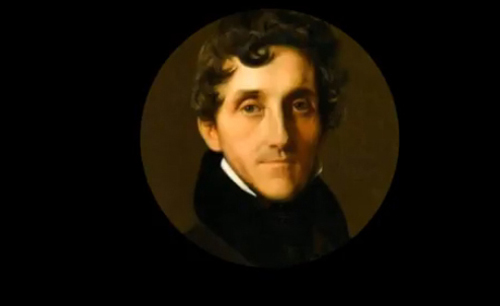
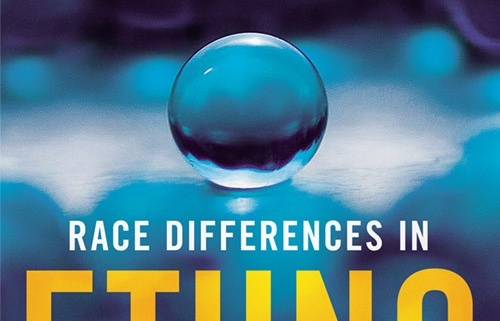
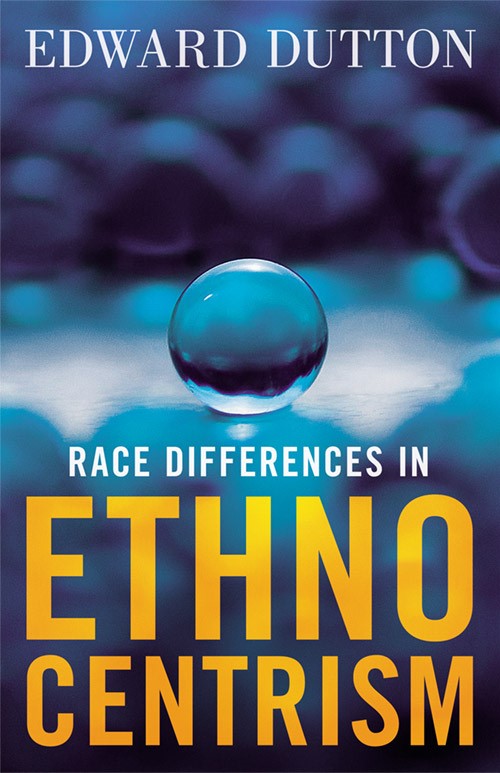



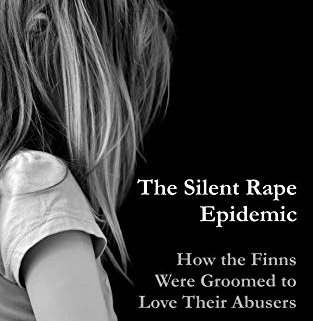
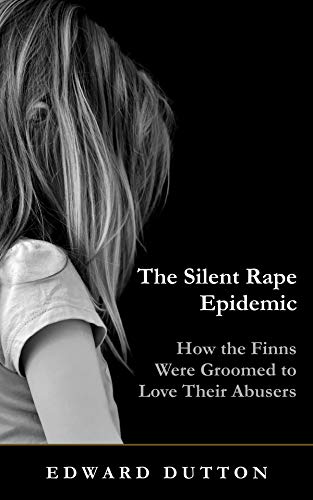
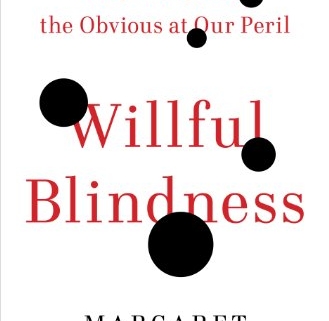
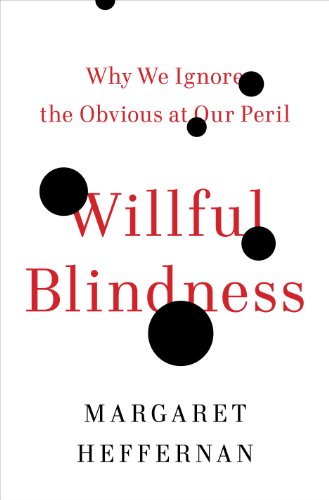 Cognitive Dissonance theory might be more important in explaining the Left’s mindset than we appreciate. Although frequently invoked by mainstream conservatives to superficially skewer liberals’ incoherence and hypocrisy, cognitive dissonance should be applied more broadly and explored more deeply. According to psychologists, the dissonance produced in the mind when holding mutually exclusive beliefs is actually nothing short of a form of mental trauma. Facts and opinions which challenge, for instance, one’s self-identity or long-held conventional wisdom can, say experts, result in agony for the afflicted, producing a feeling of desperation akin to starvation or intense thirst. Unsurprisingly then, the resulting discomfort can push the sufferer to great lengths of irrational and extreme behavior in order to obtain relief
Cognitive Dissonance theory might be more important in explaining the Left’s mindset than we appreciate. Although frequently invoked by mainstream conservatives to superficially skewer liberals’ incoherence and hypocrisy, cognitive dissonance should be applied more broadly and explored more deeply. According to psychologists, the dissonance produced in the mind when holding mutually exclusive beliefs is actually nothing short of a form of mental trauma. Facts and opinions which challenge, for instance, one’s self-identity or long-held conventional wisdom can, say experts, result in agony for the afflicted, producing a feeling of desperation akin to starvation or intense thirst. Unsurprisingly then, the resulting discomfort can push the sufferer to great lengths of irrational and extreme behavior in order to obtain relief


